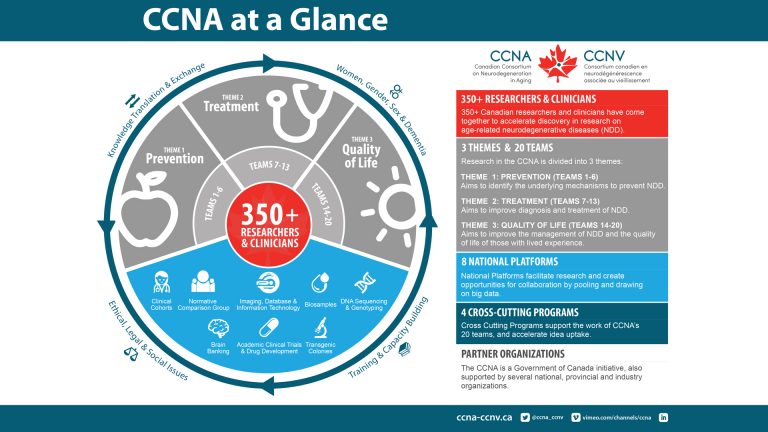Dementia – the new life thief
In the history of humanity, infectious diseases were once the great life thieves. Smallpox, black plague and tuberculosis robbed the lives of millions before the advent of antibiotics. But currently in our “aging world”, dementia has become the great life thief. Characterised by the slow and progressive impairment of memory and other cognitive functions, accompanied by personality and mood changes, it steals the lives of those living with dementia. It also steals the quality of life, and the health, of family and friends who act as caregivers. The world is heading towards a perfect storm because of the booming of the oldest old – the segment of the population in which the prevalence of dementia is very high. This is why dementia is now the health condition feared most by younger adults when they think of ageing.
Dementia also has a sex. Two out of three individuals living with dementia are women. And this difference cannot be accounted for only by the higher life expectancy in women. Moreover, women represent the majority of the caregivers to those living with dementia.
Dementia is not the result of a single brain disease, or even a set of discrete brain diseases. Indeed, many different brain diseases can cause dementia, the most frequent being Alzheimer’s Disease. Multiple strokes and vascular diseases can also cause dementia, while vascular conditions are now known to be a major contributing factor to many neurodegenerative diseases.
Moreover, the complexity of those brain diseases is such that many share mechanisms at one point or another of their progression. We also now know that the onset of the brain diseases causing dementia begins over 25 years before any clinical signs are noted. Such an early onset provides a window of opportunity to identify the individuals who are on this brain disease trajectory and stop or slow down the process before the appearance of the clinical signs of dementia.

Because research efforts to eradicate or cure these diseases will take time, and because individuals living with dementia, and their caregivers need the best care and support now, the Canadian Institutes of Health Research (CIHR) Dementia Research Strategy (DRS) adopted a balanced approach to dementia research – one that includes efforts to prevent and cure the neurodegenerative diseases causing dementia for the future, as well as efforts to improve care for those living with dementia and their caregivers today.
CIHR Dementia research in Canada and the limitation of a competition-based approach
Canada is particularly strong in discovery research in the neurosciences. There is also excellence in clinical research, research on health services and policies and in research on social dimensions of health. But traditional research funding based on excellence cannot ensure that research efforts are balanced between prevention, cure and care, and that the specific needs of people living with dementia, and their caregivers, are covered and addressed. In addition, an approach only based on investigator-driven research creates competition between researchers and does not favour the creation of synergies between them.
Moreover, research platforms developed in such a context are typically local and/or disjointed and do not allow for the pooling and exchange of data. For these reasons, the DRS is designed to enhance scientific synergies and data sharing between existing research teams and groups. And since the magnitude of the challenge is larger than a single country, the CIHR strategy also has an international component.
CIHR’s collaboration-based approach to face the challenge of dementia
The flagship initiative of the national component of the DRS is the Canadian Consortium on

Neurodegeneration in Aging (CCNA). Launched in 2014, the CCNA supports collaboration between researchers from different universities and research centres. The CCNA was engineered to address the challenge of dementia in a balanced way by focusing on three complementary aspects or themes:
- Preventing the brain diseases that cause dementia from occurring;
- Delaying or stopping the progression of the brain diseases responsible for dementia; and
- Improving quality of life for those living with dementia and their caregivers.

The CCNA is funded through partnership between CIHR and fourteen organisations including charities, provincial funding agencies, industry, and philanthropy. These partners also brought the attention of the researchers to unmet needs or opportunities. Through a series of interactions with the applicant researchers before the submission of their final application, these partners participated in co-shaping the scientific goals of the consortium. For example, the Women’s Brain Health Initiative and the CIHR Institute of Gender and Health challenged the researchers to examine the over-representation of dementia in women. As a result, the CCNA is now the only national dementia research platform that includes a sex-based approach at all levels of research.
The CCNA brings together more than 350 of the most successful Canadian researchers in dementia, from biomedical to clinical, and from health services to social aspects of health. To face the complex challenge of dementia, researchers work within 20 multi-university teams and eight shared platforms covering the three themes in a balanced and synergistic way. For example, the CCNA created the conditions needed to possibly disentangle the numerous brain mechanisms involved in dementia using a real-world approach. To do so, the CCNA has introduced a unique pan-Canadian clinical research platform of 1,600 individuals with dementia, mild cognitive impairments or with subjective memory complaints.
The COMPASS-ND platform ensures that participants are not over-selected. Rather, they represent the diversity and complexity of the individuals in a real-world approach. Since each participant will be described in full detail according to each of the important dimensions of the challenge (e.g. genetics, imaging, behavioural, social), the wealth and richness of the data will contribute to the identification of the underlying mechanisms at play at the different stages of the trajectory of those brain diseases causing dementia. At the same time, the CCNA allows for collaboration between researchers from different health jurisdictions in Canada to compare and decide on optimal care and services. The CCNA also allows for the pooling of efforts and expertise regarding specific needs of the Canadian population, such as the higher occurrence of dementia among the indigenous population.
The CCNA has other roles, including knowledge transfer to policy makers, clinicians or the public as well as training the next generation of researchers, a program delivered in partnership with the Alzheimer Society of Canada.
It is of course too early to fully measure the impact of the CCNA as a strategic investment that synergises the already rich research efforts on dementia supported in CIHR’s investigator-driven programs. But even at this early stage, one can see collaborations that never occurred before, and the introduction of collectively enriched research platforms that simply did not exist. For these reasons, by sustaining, or better, increasing the funding for the CCNA, Canada will be in a unique position to contribute in a significant way to tackling the growing global challenge of dementia.
Stepping-up the collaboration-based approach globally
Since dementia is a crucial global public health challenge, the World Health Organization’s recently adopted Global Action Plan on Dementia stresses the importance of collaboration between countries, a factor which the World Dementia Council also recognises as an integral aspect of the strategic approach. This is the reason why the CIHR Dementia Research Strategy also includes a very proactive international component – in order to support Canadian researchers to engage collaboratively with colleagues from around the world. CIHR has established collaborative research programs with China and supports Canadian teams within the NIH Alzheimer’s Disease Neuroimaging Initiative (ADNI). In 2013, Canada became the first non-European country to join the then newly created Joint Programming Initiative on Neurodegenerative Disease Research (JPND). The JPND represents the largest international collaborative initiative in dementia. Through CIHR, Canadian researchers also have access to the Centres of Excellence in Neurodegeneration (COEN) program. This program supports bold, creative and risky collaborative efforts involving researchers from each of the participating countries’ centre of excellence in neurodegenerative diseases research. For Canada, the centre of excellence is the CCNA.
The dementia challenge requires a collaboration-based approach
The success of our increasingly ageing societies is strained by the magnitude of the dementia challenge. In Canada, the CIHR Dementia Research Strategy was introduced to add a collaboration-based synergistic layer of support to the already excellent dementia research community. In resonance with Canadian values, the research community in Canada has been extremely responsive to the invitation to enhance collaboration in a balanced manner between prevention, care and cure, and to share research platforms, both nationally and internationally. As the national funding agency, CIHR’s goal is now to provide, along with its partners, the right level of support for this major national initiative and to increase the opportunity to engage in collaborations globally.
Providing the optimal treatment and care for those living with dementia and their caregivers and implementing the optimal programs to prevent brain diseases causing dementia in the population, require not only excellent science, but collaboration and sharing between research teams, both nationally and globally.


![dementia infographic-20180423[1] CIHR](https://www.healtheuropa.com/wp-content/uploads/2018/04/dementia-infographic-201804231-696x392.jpg)







